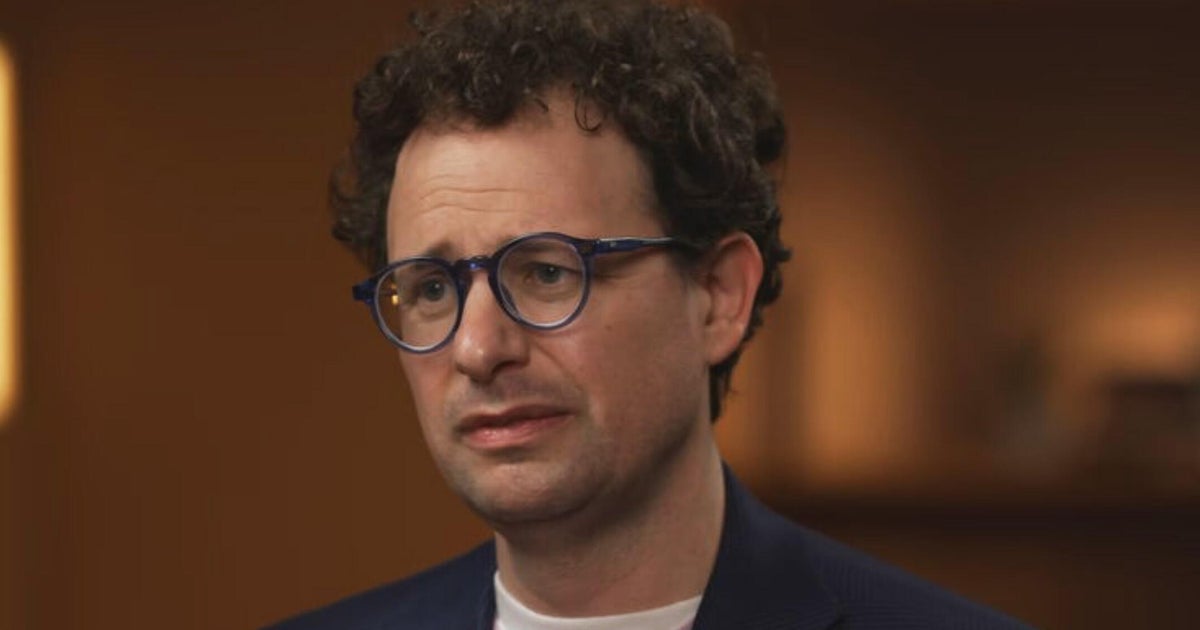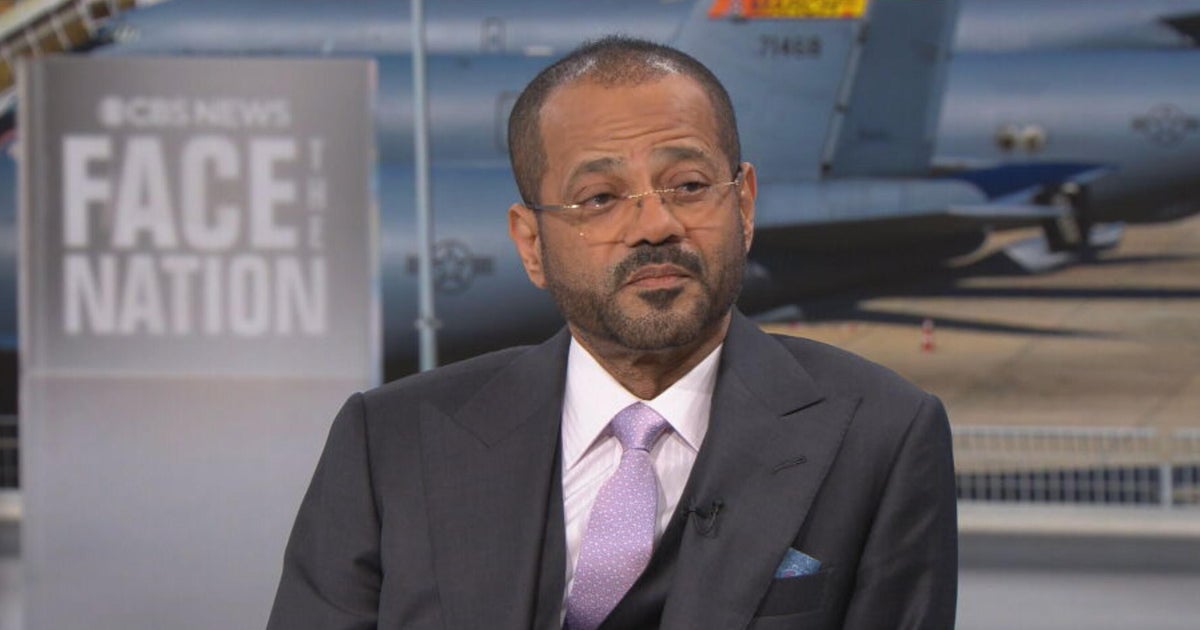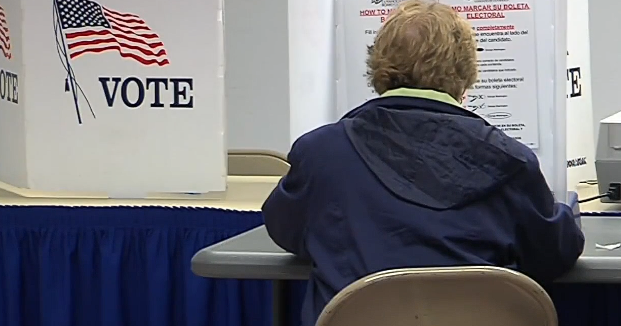Transcript: Neel Kashkari on "Face the Nation," July 30, 2023
The following is a transcript of an interview with Neel Kashkari, president of the Federal Reserve Bank of Minneapolis, that aired on "Face the Nation" on July 30, 2023.
MARGARET BRENNAN: We go now to the president of the Federal Reserve Bank of Minneapolis Neel Kashkari. Welcome back. Good morning to you, Neel.
NEEL KASHKARI: Good morning to you, Margaret.
MARGARET BRENNAN: You just heard Americans aren't feeling great about the economy. But then we have good economic news this week on inflation. And you have economists at the Fed saying they no longer see a recession on the horizon. Who do you agree with here? Do you agree with the assessment? No recession ahead?
KASHKARI: I do right now. That's our base case scenario, the economy continues to surprise how resilient it is, that's a really good thing, as your reporting just showed the unemployment rate is still very low of 3.6%. Nonetheless, I'm not going to dismiss the hardship that Americans are feeling. High inflation for several years has really put a dent in people's pocketbooks. We're now starting to dig our way out of that. So, we're making progress. But I'm also not surprised that people are still frustrated by how long it has taken to get here.
MARGARET BRENNAN: So, the Fed carried out the 11th rate hike since last year. How many more rate hikes do we have ahead of us here? Because Chairman Powell said repeatedly the full effects of the hikes are yet to be realized. When will the job be done?
KASHKARI: Well, we're not sure yet. We need to get inflation all the way back down to 2%. And while that headline number that your reporter just shared, 3%, is really positive news, that headline number tends to move around a lot, as oil prices and gas prices and food prices fluctuate the underlying number, the core numbers more around 4.1%, that's down from around five and a half percent a year ago. So, we're making good progress. But it's still double our 2% rate. And so we don't want to declare victory. We're making good progress, and we're staying on it. If we need to hike- raise rates further from here, we will do so. But we're gonna let the data guide us and not prejudge the outcome.
MARGARET BRENNAN: The outcome potentially in September when you meet again, about those rate hikes.
KASHKARI: Correct. September and beyond, you know, we may or may not raise in September, but we also will continue to watch all the data, the inflation data, the wage data, as well as the unemployment data to make those assessments.
MARGARET BRENNAN: So, there are some unknowns on the horizon here. And I'm wondering how you're thinking about them. We have a big labor strike already hitting a major sector of the economy. You have the resumption of student loan payments in October that Moody's estimates could suck $70 billion a year from the economy. We have all this tension with China. How do you think about these potential shocks?
KASHKARI: Well, we monitor the economy all the time for potential shocks, the biggest shock, of course, with the Russian invasion of Ukraine a year and a half ago. Some of those economic effects here at home have diminished, which is good news for us, though the war still persists. So we're monitoring all of those shocks. The one thing that has continued to surprise us is how resilient the American economy has been, even when shocks have hit us. So, for example, when the enhanced unemployment benefits from a couple years ago, when those expired, we thought that would have a profound impact on the labor market. It ended up not having a profound impact on the labor market. And so we will monitor the shocks. But so far, the US economy just continues to signal that it is very strong, that there's a lot of demand, workers are coming off the sidelines. And so right now, we know shocks can hit us. But right now, the base case scenario seems to be that we'll have a slowing economy, but that we would avoid a recession. And I hope that that's true.
MARGARET BRENNAN: Can you gauge how much fiscal spending has been a factor here? I know Morgan Stanley raised their growth projections based on some of the spending that's fueling construction, for example.
KASHKARI: Yeah, I think, you know, on the infrastructure side with a lot of the investment in alternative energies and bringing manufacturing back, that will also have some effect on keeping prices and those sectors, those raw materials high. But I'm not overall, I think that the inflation outlook is quite positive, that it should be slowly diminishing from here. But again, we've just continued to be surprised by the dynamics of this reopening economy. And so we can't prejudge it, we have to let the data actually guide us.
MARGARET BRENNAN: So, what are you thinking at this point? Can you actually pull off this soft landing of lowering inflation, slowing growth without, you know, causing job losses and recession?
KASHKARI: Well, I think that I would love to see- see it continued, you know, in your reporting, you shared a quote from Chairman Powell, where he said there's been so far no cost to the labor market, which is absolutely right and absolutely terrific. I personally don't think that's realistic, that we're going to end this inflation cycle with no cost to the labor market. It would not surprise me to see the unemployment rate tick up from 3.6 to 3.7, 3.8, maybe even 4%. That in my book- that would still be a soft landing. We definitely want to avoid a deep recession where you have hundreds of thousands of people losing their jobs month after month after month, the kind of painful recession that we have seen in the past. If we can achieve 2% inflation with only a modest softening in the labor market, I think that that would be a resounding positive outcome for the country as a whole. We can get back to the kind of economy we had before the pandemic, which was very low unemployment, low inflation, modest, but positive real wage gains for the American people. That is absolutely achievable, but we need to finish the job.
MARGARET BRENNAN: You are president of the Minneapolis Fed. So, you have a lot of farmland in your district. And in that heartland, part of the country, do you have any sense yet what economic impact there will be from this extreme weather?
KASHKARI: Well, it's very challenging, obviously, for the ag- sector overall, we're blessed in our part of the country that we have a very diverse economy. So, if parts of the ag- sector are under pressure, usually other parts of the economy are doing better. But it's going to be a transition. I mean, I think if year after year, if we continue to see record high temperatures, it's going to drive changes to what farmers are planting, it's going to drive changes to where they're planting. You may see, you know, in our part of the country, it's quite cold in much of the- much of the year, that warming may mean that we have longer growing seasons here at the cost of growing seasons. And in further, you know, further southern regions like California, for example. So, I think it's going to drive long term changes, but some of those changes might be upon us more quickly than we appreciated.
MARGARET BRENNAN: And we are trying to gauge that here, Neel, in our reporting. Thank you so much, Neel Kashkari, for joining us. We'll be right back.



